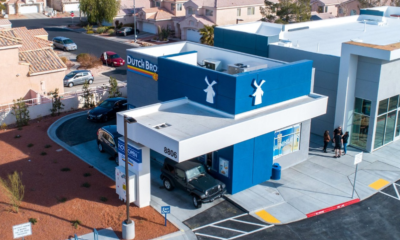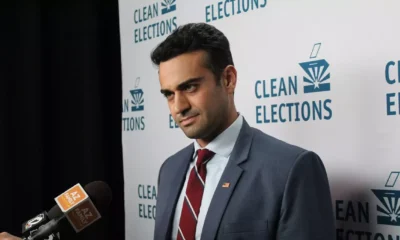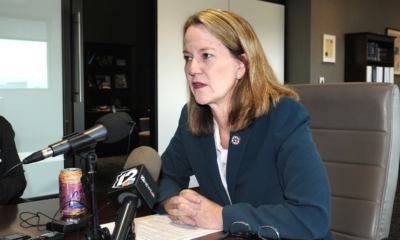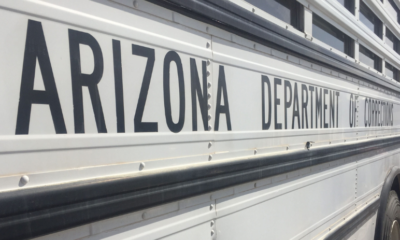arizona
In Arizona, GOP Candidates for County Recorder Ride the Wave of Election Distrust

Arizona’s electoral landscape faces significant upheaval as candidates for county recorder emphasize unfounded claims of voter fraud alongside valid concerns regarding election administration. This trend has intensified over four years marked by allegations and some genuine administrative lapses.
In Maricopa County, Republican state Representative Justin Heap is campaigning against Democrat Tim Stringham, promising to “secure our elections.” Heap’s campaign gained momentum after he defeated incumbent recorder Stephen Richer in the August primary, criticizing Richer for what he called “the worst election in history” during the 2022 midterms.
The heightened scrutiny surrounding these races underscores a transformation in the recorder’s role since the 2020 election cycle. Traditionally, county recorders managed routine duties with little fanfare; however, the diffusion of false election fraud narratives has led to increased public attention and distrust.
Republican candidates armed with similar platforms to Heap’s are contesting seats in Coconino, Navajo, Pinal, and Yuma counties. In Cochise County, incumbent Recorder David Stevens is seeking re-election as skepticism regarding election integrity persists. Secretary of State Adrian Fontes remarked that these races represent a critical juncture between truth and misinformation, highlighting Stringham’s qualifications against Heap’s controversial stance.
Fontes, expressing his concerns about the election’s integrity, endorsed Stringham, emphasizing the importance of honest governance. Recorders wield significant influence over voter roll maintenance, location of early voting sites, and ballot drop box distribution, making their elections critical to public trust.
In Pinal County, where the election department was recently placed under the control of Recorder Dana Lewis, questions linger about the integrity of the electoral process. Supervisor Kevin Cavanaugh, who has openly challenged the county’s election integrity, will run as a write-in candidate against Lewis after an independent audit discredited his fraud allegations.
The turnover rate among county recorders is rising sharply, influenced by the pressures of recent electoral cycles. Veteran recorders have exited the stage, while newer candidates, including several former elected officials, have assumed prominent roles, ready to navigate public scrutiny.
In Yuma County, David Lara, the Republican candidate, defeated incumbent Richard Colwell in the primaries. Lara’s campaign centers around his commitment to addressing perceived ballot harvesting issues, which he claims are widespread. His insistence on using stringent signature verification reflects these priorities.
Democratic opposition, represented by Emilia Cortez, is focused on building trust in the electoral process and protecting election workers. Cortez brings experience as a former poll worker, underscoring her dedication to fair elections.
Similarly, in other counties, candidates are alleging negligence in cleaning voter rolls while further playing into narratives of noncitizen voting. For instance, Coconino County’s Bob Thorpe cites thousands of unremoved entries from the voter database, a claim disputed by retiring Recorder Patty Hansen, who endorses Thorpe’s opponent, Democrat Aubrey Sonderegger.
The backdrop of these races reveals a crucial moment where accusations and realities collide in the state’s electoral processes. With increased skepticism surrounding election integrity, the actions of these candidates will have lasting implications on Arizona’s voting landscape.

















